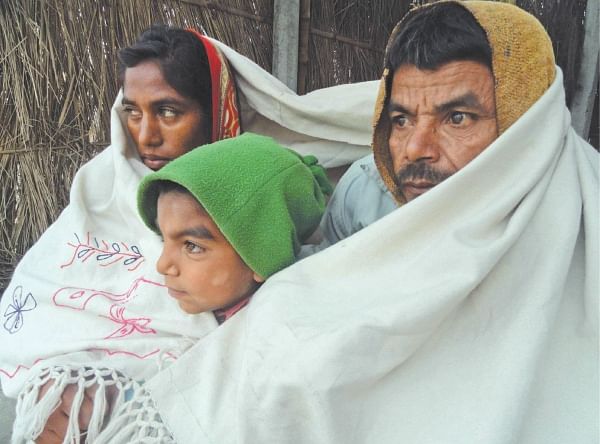| Home - Back Issues - The Team - Contact Us |
 |
| Volume 11 |Issue 51| December 28, 2012 | |
|
|
Health A Concern for all Seasons Diane Hanson One of the biggest mistakes many people make in winter is that they forget to drink water. In summer, dehydration is obvious – temperature soaring steadily, beads of sweat rolling off your brows, your vision starts to blur, you know you have to grab a glass or bottle of water and drink up. In contrast with summer, the signs and symptoms of dehydration in winter may be subtle and gradual, making dehydration difficult to detect. Psychologically, it can be rather easy to forget hydration during winter because it's cold and we're less likely to feel thirsty but heavy exercises or activities can cause your body to lose more than two litres of water an hour and increase your risks of dehydration. Also, factor in dry winter air, the use of heaters indoors and the layers of thick clothing, winter dehydration can happen. Water is necessary for various body functions and the general maintenance of good health. Not only is water required to regulate the body's temperature through sweating and keep the body tissues – lungs, nose, mouth – moist, it is also needed to remove toxins and waste from the body, and transport nutrients and oxygen to cells. In addition, water also protects your spinal cord and lubricates joints, preventing joint and muscle stiffness. The signs and symptoms of winter dehydration are very much the same as dehydration in summer, and it can range from mild to severe. Pay attention to the following warning signs of dehydration and make sure you drink plenty of water even if you don't feel thirsty. Signs and Symptoms of Dehydration Include Preventing dehydration in the winter months is very simple; just make sure you drink regularly in small amounts to keep yourself well hydrated at all times. Always have a water bottle with you – on your desk at work, in your car, in your bag – and refill it often. Keep in mind that being thirsty or having a dry mouth is not a true indicator of how much water your body needs. Therefore, you should consume plenty of fluids even if you don't feel thirsty. This is the best way to stay adequately hydrated before the thirst mechanism begins to work and alert you to drink up.
Broadly speaking, the total daily water loss is about 2,500ml (women) to 3,000ml (men) per day. So as a general rule of thumb, drink at least eight (8 ounce) glasses of water a day to replace this water loss. How much water you need, however, depends on a number of factors, including your age, weight, activity level and current health status. Elderly people are particularly vulnerable to dehydration. This may be due to reasons like decline in kidney function with age, weak thirst mechanism, and hormonal changes, just to name a few. You may also have to consume more liquids if you're taking medications that cause the body to lose water, such as diuretics for hypertension (high blood pressure) and laxative, or suffering from a disease that causes vomiting (cancer) or diarrhoea (Crohn's disease). Additionally, you'll also need to increase your water intake if you're on a high protein diet (Atkins diet), or on a high fibre diet. Be mindful that diuretic drinks, like alcohol – beer, white wine, red wine – encourage water loss by increasing urine production. It is therefore important to avoid beverages that contain caffeine, such as coffee, teas, sodas and energy drinks. Or, drink more water to compensate for the diuretic effects of such drinks. The idea is to balance the amount of water that goes in your body with the amount of water being lost through urination, breathing and sweating. A simple way to tell whether you're getting enough fluids is looking at the colour of your urine. If you see dark yellow urine that has a strong smell, or if you go to the toilet less than four times a day, it means you'll need more water. Constipation and dry cracked lips may also indicate a need to drink more water. Besides drinking water, there are many other ways to meet your total daily fluid needs. For example, eat plenty of water-rich fruits and vegetables such as watermelon, orange, lettuce and cucumber. Juices, yogurts, soups and broths are also a great way to keep up your water intake during the winter months.
Copyright
(R) thedailystar.net 2012 |
